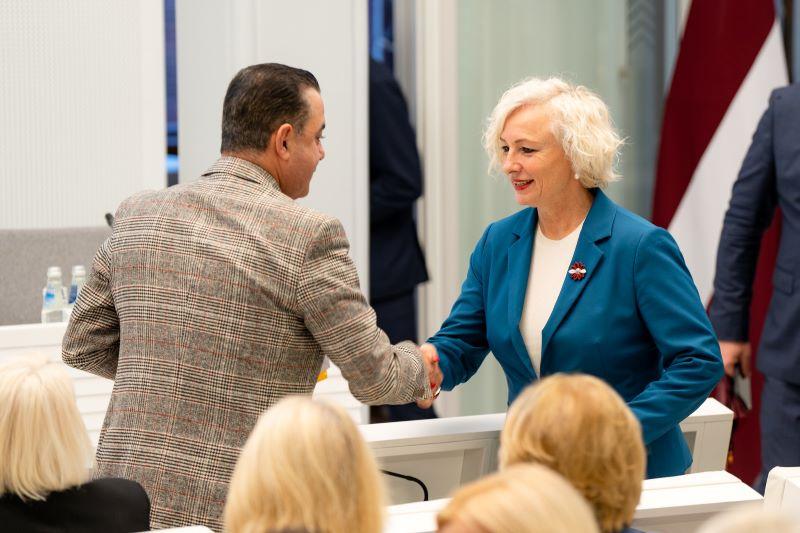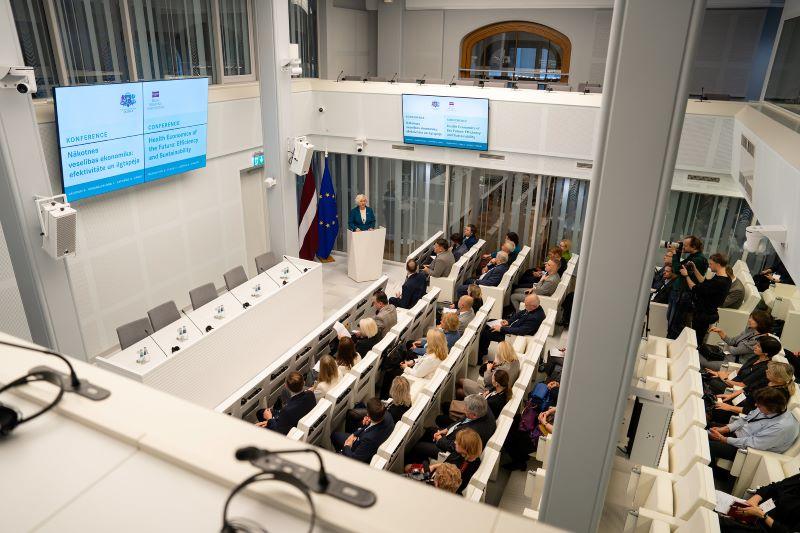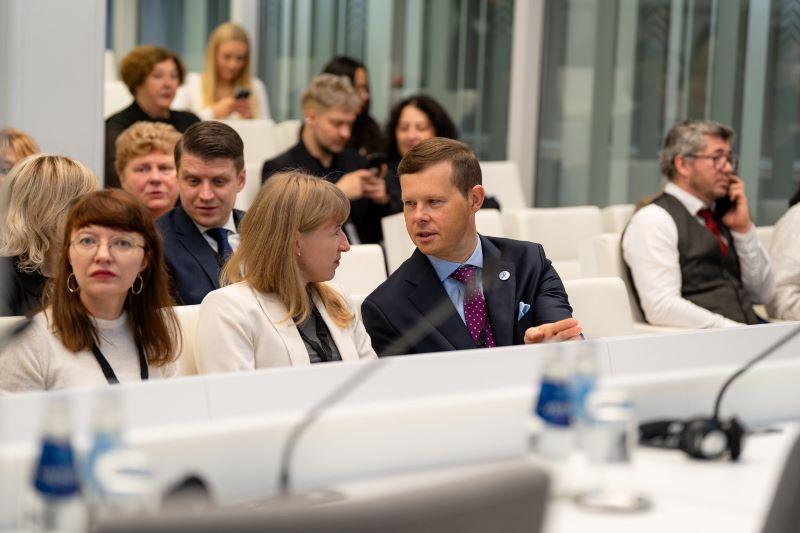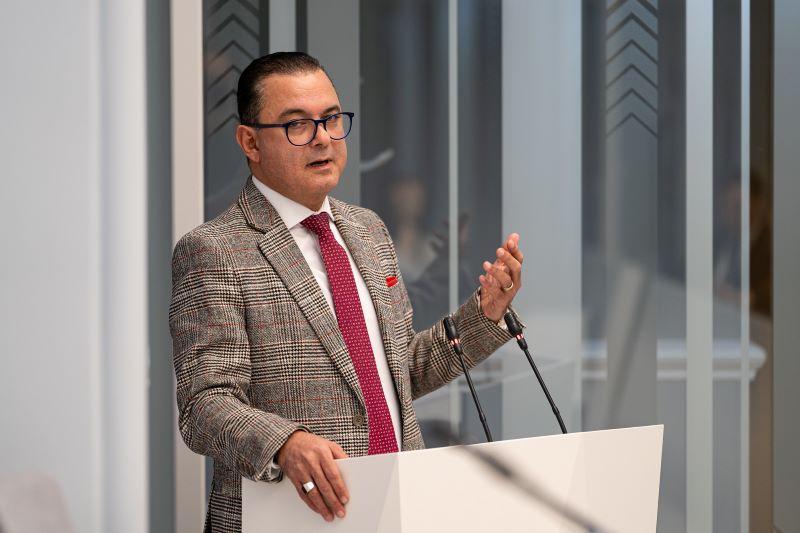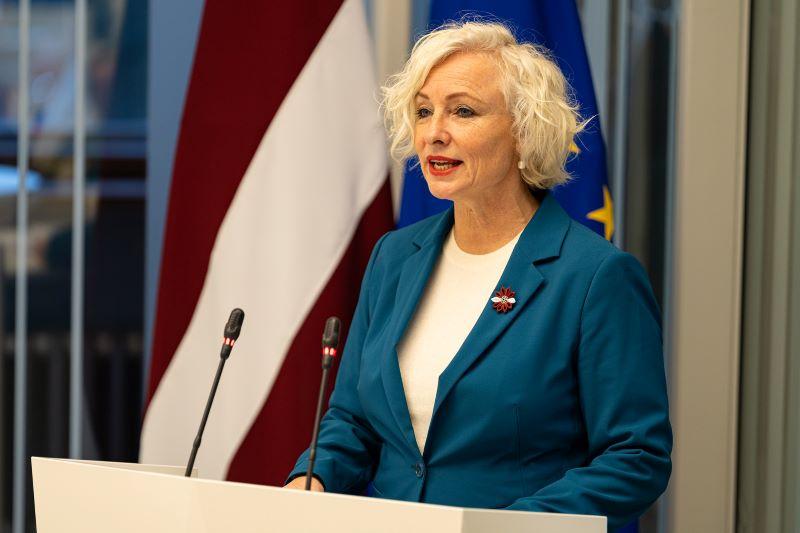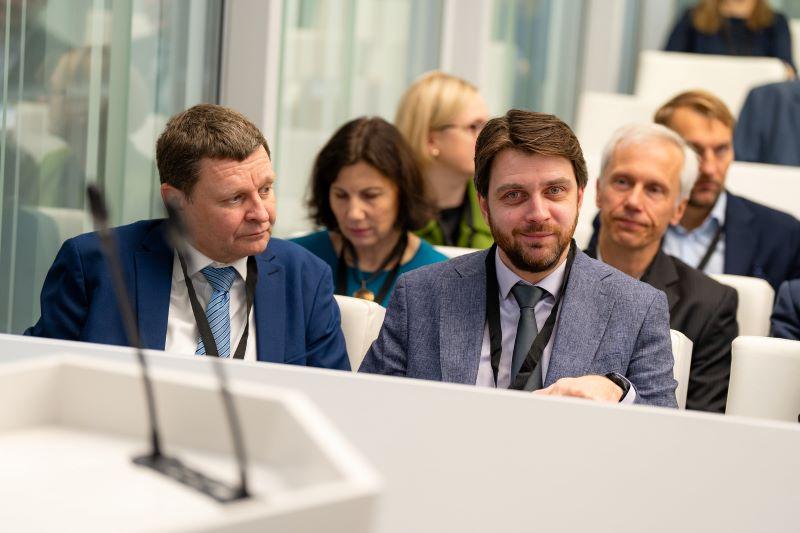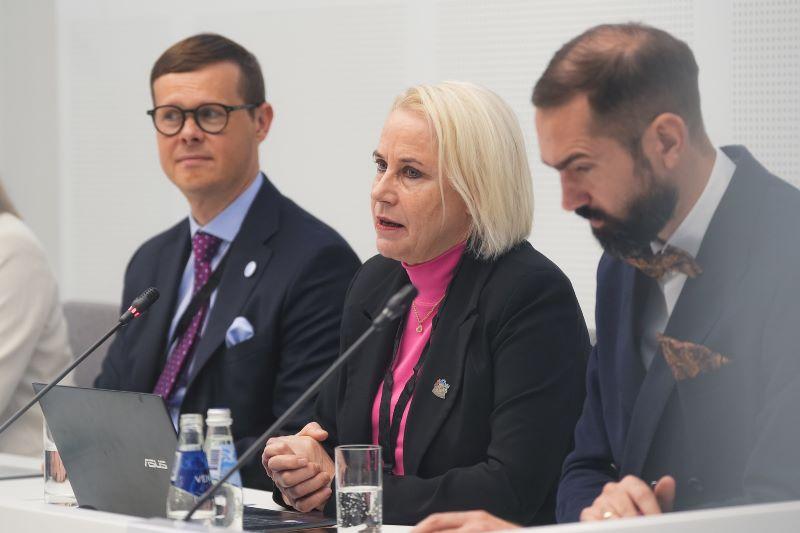RSU organised The Future of Health Economics: Efficiency and Sustainability conference together with the Parliament of the Republic of Latvia
On November 1, the Social and Employment Matters Committee of the Parliament of Latvia (Saeima) hosted a conference aimed at exploring the future of health economics in collaboration with the Rīga Stradiņš University (RSU) Faculty of Social Sciences. The event focused on evaluating healthcare opportunities and challenges, considering economic, political, and social factors, while also discussing international approaches to developing health economics. Another aim was to understand how innovation and new solutions can support the sustainable development of healthcare systems.
The conference was opened with remarks from the Speaker of the Saeima Daiga Mieriņa, Minister for Health of the Republic of Latvia Hosams Abu Meri, and the Dean of the RSU Faculty of Social Sciences, Karina Palkova. Each speaker highlighted the essential role that interdisciplinary cooperation plays in building a sustainable and effective healthcare system.
In her address, Speaker Mieriņa emphasised that a value-based healthcare system requires accessible financial resources, effective allocation, and strategic investments. The Speaker added that while a healthy lifestyle is fundamental to public health, it’s also crucial to consider how much individuals contribute to maintaining it.
Focus on intersectoral cooperation
Minister for Health Abu Meri stressed the importance of innovation and digital technology in healthcare, asserting that the growth of Latvia’s health economy is closely tied to modern technology, which can enhance both access to and efficiency of healthcare services. He noted Latvia’s high medical standards and the recent advancements of health technology startups and pilot projects by the National Health Service, which he said have helped Latvia make significant strides in the international arena.
‘We need to reinforce the roles of individuals and healthcare providers and also look to international examples in hospital network optimisation to achieve a sustainable and accessible care model,’
he added.
Interdisciplinarity and evidence-based policy
Dean Palkova, focused on
the value of interdisciplinary approaches in health economics and policy-making. She emphasised that a sustainable economy cannot exist without a healthy population and that a well-functioning healthcare system depends on stable economic growth.
Palkova also highlighted the importance of evidence-based policy, stating that well-analysed data forms the foundation for effective, sustainable policy-making. She concluded by emphasising the crucial role of research and science in advancing health economics.
Key challenges and solutions in healthcare
The first part of the conference centered on the future of healthcare systems, addressing major challenges and opportunities. Panelists included Artjoms Uršuļskis, Parliamentary Secretary of the Ministry of Health; Līga Kozlovska, Head of the Social and Employment Matters Committee; Normunds Staņēvičs, Chair of Riga East Clinical University Hospital; and Anna Klēšmite-Blūma, Board member of the Latvian Association of Young Doctors. The discussion focused on critical issues such as the shortage of healthcare specialists in regional areas, the need to enhance healthcare accessibility and cost-effectiveness, and the necessity of long-term solutions for providing quality healthcare services.
Capacity building in the health system
The second part of the conference examined strategies to expand the capacity of the healthcare system, drawing on international experiences and innovations. Presenters included Oļegs Krasnopjorovs, Chief Economist of the Bank of Latvia; Sara Olofsson, Research Director at the Swedish Institute for Health Economics; Vladislava Marane, Director of the Association of International Innovative Pharmaceutical Firms; and Rein Laan, Chair of the Estonian Health Insurance Fund. They discussed opportunities for health economics breakthroughs and shared their respective experiences.
Digitalisation and artificial intelligence
Experts highlighted the role of innovations in healthcare, such as the adoption of digitalisation and artificial intelligence, which could greatly improve healthcare efficiency and open up new opportunities in data analysis and health forecasting. Representatives from Sweden and Estonia shared insights on optimising hospital networks and improving health insurance systems to support more efficient resource allocation and expand access to healthcare services.
RSU involvement in research and solutions
The issues and visions identified during the conference will serve as research topics for RSU students’ theses, engaging future specialists in the analysis of practical cases and the development of solutions. This involvement of emerging experts in health economics research supports Latvia’s goal of fostering a sustainable and innovative healthcare system.
Conference proceedings and recording (in Latvian)
Related news
 Apply for the B-Space incubation programmeInnovation, RSU LSPA, For Students, RSU Alumni, For RSU Employees
Apply for the B-Space incubation programmeInnovation, RSU LSPA, For Students, RSU Alumni, For RSU Employees
